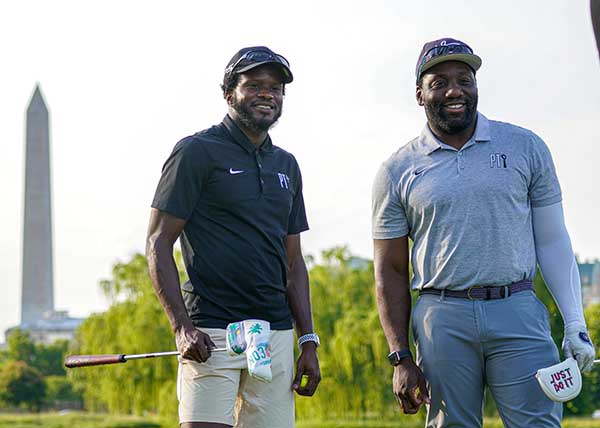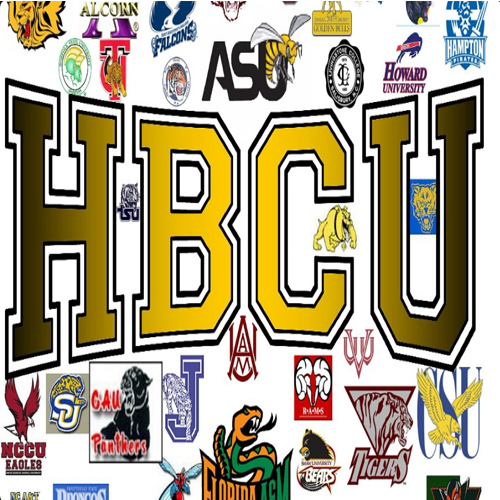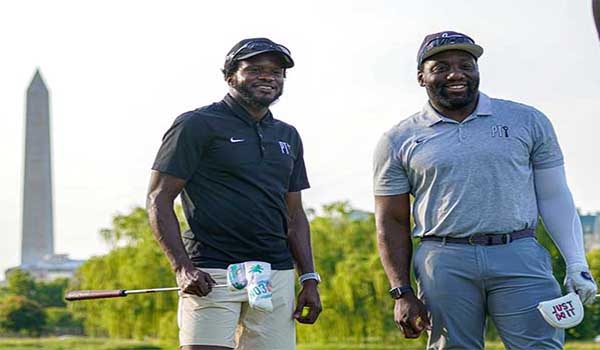
October 27, 2021 | By Dr. Jawanza Kunjufu
Dr. Charles Richburg, author of the book, A Career Guide for Black Male Student Athletes: An Alternative to the Pros, believes the awakening of Black males student athletes returning to HBCUs is attributed to being led by the “Spirit Within!”
A discerning sports enthusiast, Richburg realizes these shifts. HBCUs are the lifeline for our communities today as they were yesterday. Historically Black Colleges and Universities were considered – among sports play – the most desirable places for Black male student athletes for both academic and athletic pursuits.
Options were not as plentiful in the early 20th Century. BMSAs arrived on campuses with limited exposure while carrying in their hearts, hopes and dreams to someday make it to the pros. Many BMSAs’ attraction to the “seemingly lure and lavish life of professional sports” is exemplified through the likes of all time greats on this starter list of luminaries who went on to professional basketball careers and businesses.
 YOU MAY ALSO LIKE: Women In Golf Foundation, Inc. makes $25,000 contribution to HBCU Women’s Golf Programs
YOU MAY ALSO LIKE: Women In Golf Foundation, Inc. makes $25,000 contribution to HBCU Women’s Golf Programs
Willis Reed – Grambling State, 1964 with a B.A., physical education major; Sam Jones – North Carolina Central, 1957 and first round pick of the Boston Celtics; Earl “The Pearl” Monroe, Winston-Salem State,1967, and second overall pick in the ’67 NBA draft to the Baltimore Bullets (renamed Washington Wizards).
These luminaries are an inspiration to generations of Black youth eager to compete on a platform offering competitive playing levels, both physical and analytical to showcase their athletic skills. Since that time, there was a trend of BMSAs turning to primary white institutions (PWIs) due to the desire of northern schools seeking to have a winning team and adding to its financial coffers. After decades of drawing BMSAs away from HBCUs, why has this trend reversed?
Many of the HBCUs cannot compete with the offerings of the major PWIs when it comes to facilities, living quarters and other types of compensation. Or perhaps the reason(s) for this reverse migration is more intrinsic. Chief among them could be that today’s young people of color are awakening to the realities of what this shift can offer to their self-development and overall improvement as well as aiding the financial solvency of HBCUs.
 RELATED: Money Flows to Talent: Why HBCUs Must Fight to Attract More Top Ranked Black Student-Athletes
RELATED: Money Flows to Talent: Why HBCUs Must Fight to Attract More Top Ranked Black Student-Athletes
This independence, coupled with the NCAA, Name-Image-Likeness (NIL) policy established in 2020, BMSAs can now capitalize financially. Dr. Richburg urges more BMSAs to return to HBCU’s. Rest assured, as this migration occurs, PWIs are developing strategies to thwart this migration. Stand strong BMSAs, something great is coming!
For more on BMSAs go to https://www.richburgcs.net/


